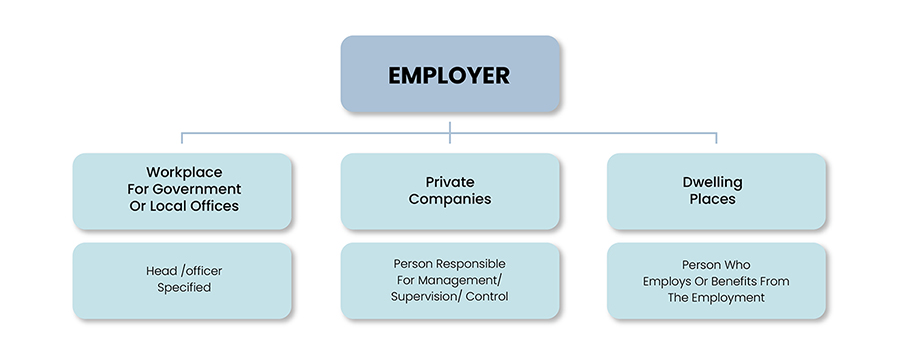What starts as an innocent relationship between two people interacting in the workplace can result in inappropriate and unprofessional behaviour. In simple words, sexual harassment at the workplace is any kind of sexual or unwelcomed behaviour that the victim experience. The definition of unwelcomed experience is subjective to what a victim feels is inappropriate. The experience can be a single instance or a series of cases that occur over a period of time. Each case differs from the other, all the angles of the case must be considered along with the surrounding circumstances. It is observed that cases of sexual harassment at the workplace have increased around the world. To prevent this in India, all workplaces are mandated by law to provide a safe place to work for women.
The Sexual Harassment of Women at Workplace (Prevention, Prohibition and Redressal) Act 2013
The act was made effective to address sexual harassment issues faced by women in the workplace. In this act, sexual harassment is defined as any unwelcomed act or behaviour, whether directly or by implication. Physical contact and advances, a demand or request for sexual favours, making sexually coloured remarks, showing pornography, or any other unwelcome physical, verbal, or nonverbal sexual conduct are examples of inappropriate sexual behaviour. Common workplace behaviours include asking for dates repeatedly, making comments about one's body or appearance, making sexist remarks, offering employment benefits in exchange for sexual favours, threatening, and so on.
Who is covered under this act?
The act covers all women working or visiting the workplace, irrespective of their age or employee/work status. They can be employed on a regular, temporary, ad hoc, or daily wage basis, either directly or through an agent, including a contractor, with or without the knowledge of the principal employer. The employee may work for pay, on a volunteer basis, or in any other capacity. The designation employee can be anything such as co-worker, contract worker, probationer, trainee, apprentice or any other. The act also covers women who work as domestic help. They can be on a temporary, permanent, part-time or full-time basis, but do not include any member of the employer's family.
Who is an employer?
According to this act, an employer can be the head of a department, organisation, establishment, government officer, local authorities, or any person managing a workplace not mentioned in Clause (i). It also includes a person or a household that employs a woman as a domestic worker.

What is the impact of inappropriate behaviour on a victim?
Sexual harassment has both personal and professional impacts on the victim, such as:
Personal impact
- Depression
- Anxiety or panic attacks
- Trauma
- Shame, guilt and self-blame
- Unable to concentrate
- Eating disorder
- Feeling of betrayal
- Loss of confidence
- Withdrawal and isolation
- Difficulty in intimacy
Professional impact
- A decline in work performance
- Increase in absence at work
- Consideration of revenge
- Subject to scrutiny at work
- Defamation
- Having to relocate
The victims can have distinct reactions to sexual harassment from the ones mentioned above. It also affects the productivity of the workplace and reflects negatively on society.
Common Acts of Sexual Behaviour at Workplaces
Workplace sexual harassment comes down to two forms.
- This for that
In this, preferential treatment is promised to the victim as a favour. It also includes promises or threats about employment. - Creating a holistic environment
Humiliating employees and creating a holistic work environment by terrorising or saying offensive things about them.
Unsuitable behaviours can be improper use of authority, passing sexual remarks, intimidating, blackmailing, trying to have physical contact, etc. It can also include improper distribution of work, excluding individuals from group activities, preventing employees from succeeding, etc.
If you are experiencing any such behaviour at your workplace, then do not avoid it. It can have a negative impact on your personal and professional life. Not only that, it will prevent you from succeeding in your career. Approach the Internal Complaint Committee (ICC/IC) in your office and make them aware of the problem. If there is no ICC in your office, approach the Local Complaint Committee or police station immediately. Sexual harassment is an offence and it is degrading to society, so do not keep quiet about it. Check out my other blogs about the Internal Complaint Committee and the Local Complaint Committee here.
